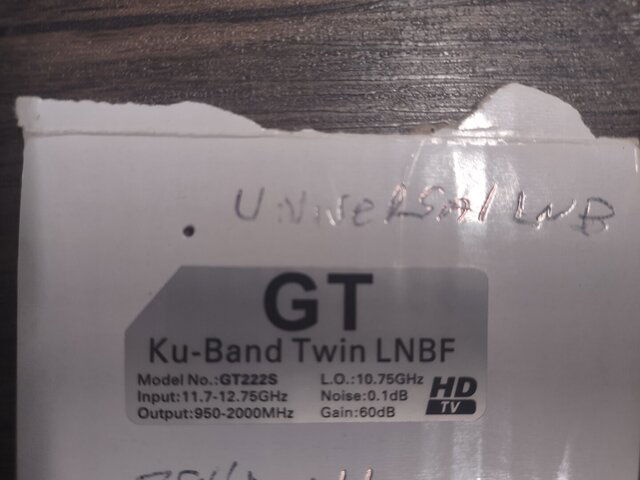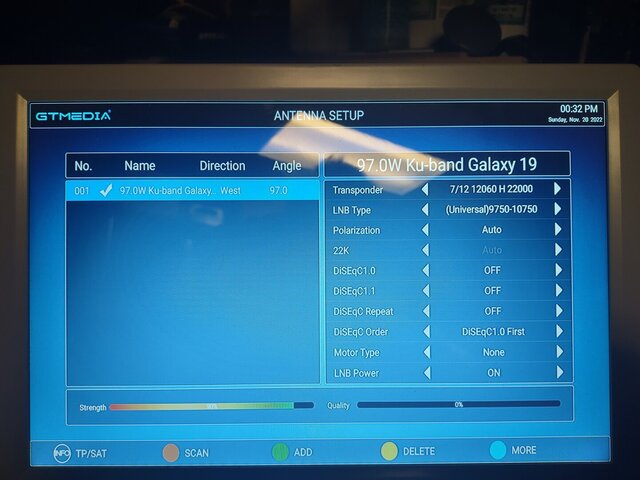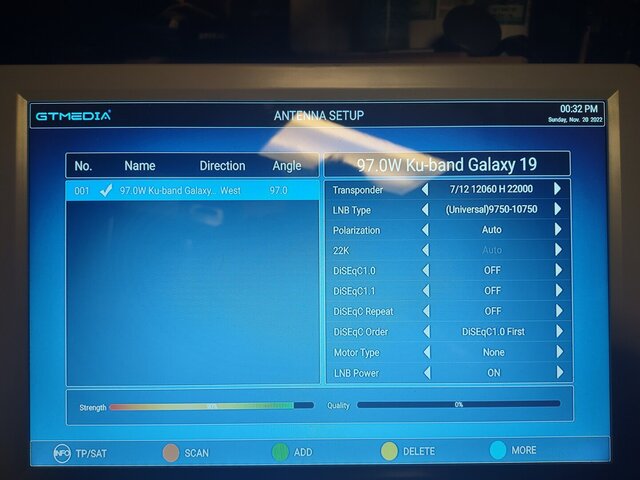Looking at the elevation scale, that has the lines UNDER the numbers, I'd expect the elevation indicator mark UNDER the bracket.
The photo in post #99 seems to show a mark, at present position 55 degree elevation.
I would set the dish purely vertical, and then look at the value at the elevation scale. I'd expect it to be exactly the offset angle value.
Edit: If not, then there might be an assembly problem/error.
When the dish has a flat dish face, the offset angle can be calculated from width and height of the dish. But Brian already says it's 24.6, for this dish.
I would try to solve the elevation scale unclarity, before trying to find any satellite. (First things first!)
Greetz,
A33
Edit2: By the way. When you've disassembled the dish, you might take the opportunity to stringtest the dish; when it is a flat dishface dish. That is: put some thin ropes (or whatever you call it in english) across the dish, at various angles. When the dishface is still flat, the ropes should barely touch. When the dish is warped, the ropes touch heavily, or there is space between the ropes. Then you'd have to de-warp, first!




